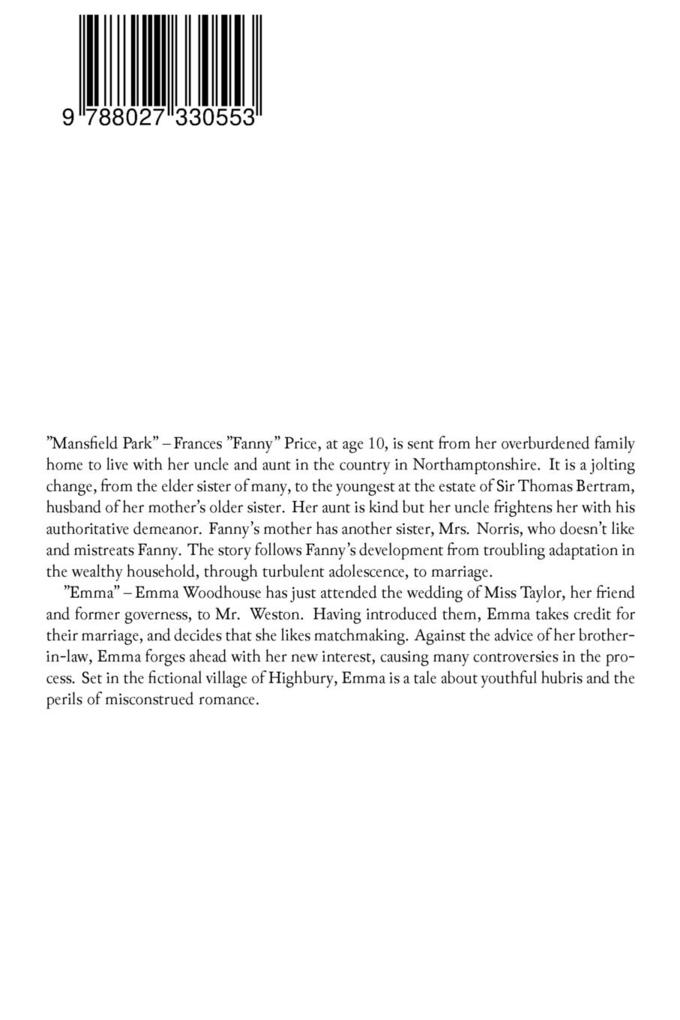
Zustellung: Mi, 10.09. - Mo, 15.09.
Versand in 2 Wochen
VersandkostenfreiBestellen & in Filiale abholen:
In her novels "Mansfield Park" and "Emma," Jane Austen masterfully weaves intricate narratives that explore themes of social class, morality, and personal growth. "Mansfield Park" centers on Fanny Price, a shy and moralistic heroine who navigates the complexities of a wealthy family, engaging with issues of virtue and obligation against the backdrop of early 19th-century English society. Conversely, "Emma" presents a more playful yet astute exploration of social manipulation through the character of Emma Woodhouse, a spirited and self-assured young woman whose misguided matchmaking often leads to unexpected consequences. Austen's keen observation of her characters' inner lives, combined with her quintessentially ironic style, positions these works within the larger context of Regency literature, reflecting and critiquing the norms of her time. Jane Austen, one of the most celebrated novelists of English literature, often drew from her own experiences within the genteel English countryside, deeply informing her creation of multifaceted characters and their moral dilemmas. Growing up in a close-knit family, Austen was exposed to a range of social conditions and human behaviors, which she adeptly translated into her fiction. Her distinctive voice not only critiques societal structures but also advocates for women's agency within them. Both "Mansfield Park" and "Emma" are essential readings for anyone interested in the evolution of the novel as a form and the representation of women in literature. Austen's insightful portrayal of the dynamics of social relationships and her witty observations offer readers timeless wisdom and humor. These works invite us to reflect on our own lives and the intricate dance of human interaction.
Produktdetails
Erscheinungsdatum
14. Dezember 2018
Sprache
englisch
Untertitel
Sprache: Englisch.
Seitenanzahl
468
Autor/Autorin
Jane Austen
Verlag/Hersteller
Produktart
kartoniert
Gewicht
621 g
Größe (L/B/H)
229/152/24 mm
ISBN
9788027330553
Entdecken Sie mehr
Bewertungen
0 Bewertungen
Es wurden noch keine Bewertungen abgegeben. Schreiben Sie die erste Bewertung zu "Mansfield Park & Emma" und helfen Sie damit anderen bei der Kaufentscheidung.










